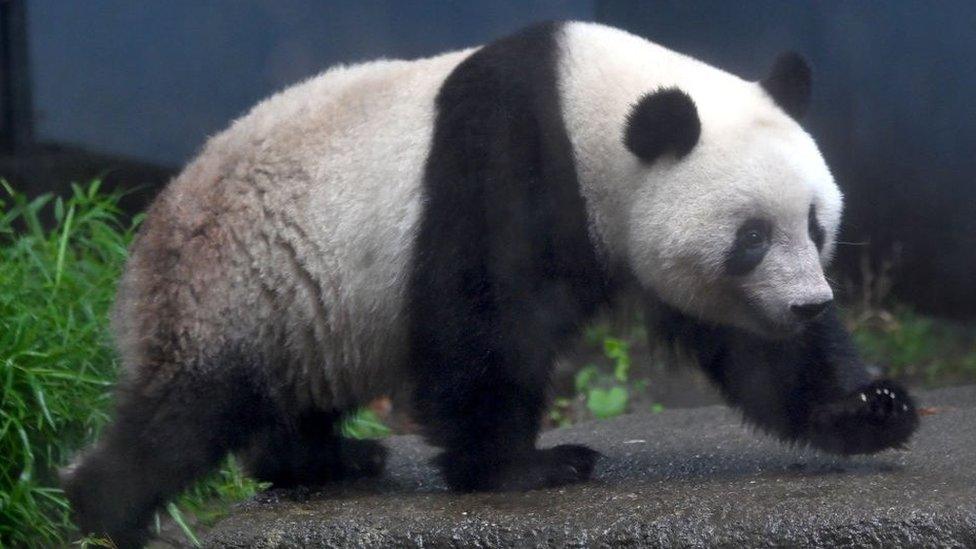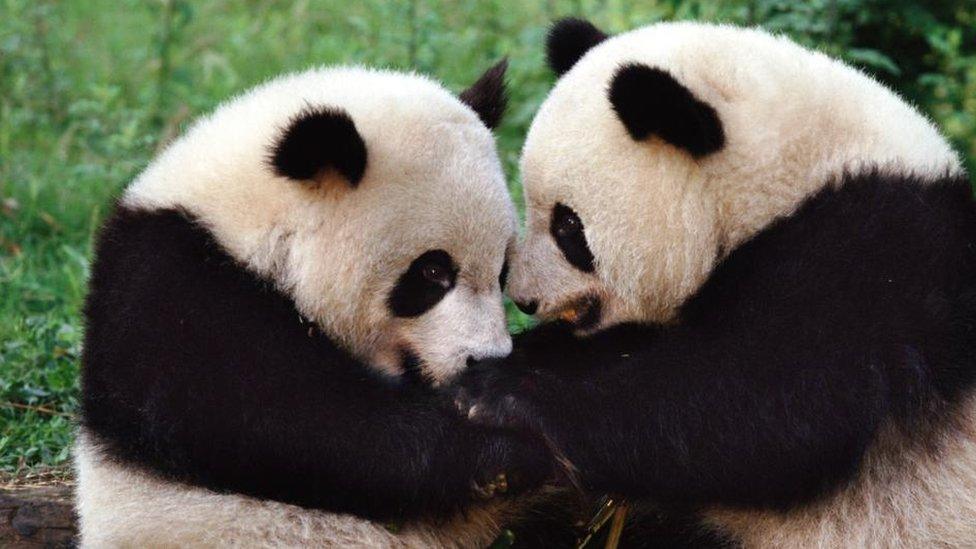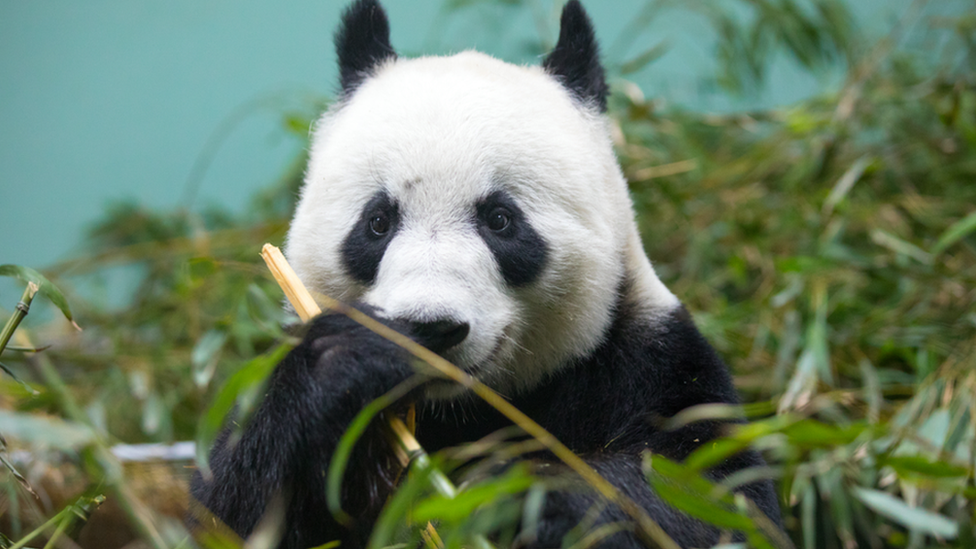Japan panda: Possible pregnancy bumps restaurant stock price
- Published

Shin Shin the giant panda has a history of affecting share prices with news of her pregnancies
The news that a panda at Tokyo's Ueno Zoo may be pregnant caused the share prices of nearby restaurant chains to temporarily surge on Friday.
Fifteen-year-old giant panda Shin Shin is showing signs of pregnancy, the zoo announced.
However, her condition has not yet been confirmed and false pregnancies are common in the mammals.
Ueno Zoo reopened on Friday after being closed to the public for five months due to the pandemic.
Pandas play a powerful role in Japan's tourism economy, and share prices have a history of rising and falling in line with their pregnancy news, as investors are encouraged by the possibility of more zoo visitors.
Totenko, a Chinese restaurant chain, saw a spike of nearly 30% on Friday. The company experienced a similar rise in 2013 and 2017 when the Zoo announced Shin Shin may be pregnant - although the first was a pseudo-pregnancy.
Meanwhile, share prices of French eatery Seiyoken closed 8% higher.
Both chains have large restaurants on the outskirts of Ueno Zoo and are frequented by its visitors.

Xiang Xiang (R) was born to mother Shin Shin (L) and father Ri Ri in 2017
The zoo said Shin Shin mated with male panda Ri Ri on 6 March.
Both pandas are on loan from China, and had a cub named Xiang Xiang in 2017. They had another cub in 2012 - the first panda born at the zoo in 24 years - but it died after just six days.
This is the first time in four years the zoo has thought Shin Shin may be pregnant. In a statement, external it said she is eating less and resting more - typical signs of a pregnant panda.
However, female pandas can show signs of pregnancy after their ovulation period even if they have not been fertilised. When Shin Shin gave birth in 2012, zookeepers had only confirmed her condition a few days earlier.
If she is pregnant, a birth date can only be widely estimated as the gestation period of a giant panda can range from 90-160 days.
Bear hug: Six-month-old panda Fu Bao just doesn't want to let go of her zookeeper in South Korea
- Published16 March 2020

- Published4 January 2021

- Published27 November 2020

- Published27 June 2020

- Published6 August 2020

- Published7 August 2020
